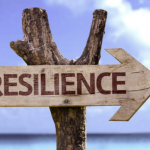Pits and piles
There are money pits America needs to fill.
There are money piles we might use.
 America needs to pay these obligations – or duck them.
America needs to pay these obligations – or duck them.
$14,350,000,000,000 Our national debt, most will agree, is too big for our national income to support. Slowing or stopping its growth means significantly cutting the federal deficit, currently $1.65 trillion per year.
$2,000,000,000,000 Estimated infrastructure repair needs (e.g. roads, bridges, transportation networks and water systems) in the US.
$36,000,000,000,000 Estimated present value of unfunded obligations under the Medicare program.
$5,400,000,000,000 Estimated present value of unfunded obligations under Social Security.
$1,260,000,000,000 Retirement and healthcare benefits promised to state public employees for which there is no funding.
Here are some of the cash piles and cash flows being proposed as sources to reduce the depth of these pits.
$2,400,000,000,000 The pile of corporate cash at the S&P 500 companies. If businesses can be enticed into putting some of this cash to work in log-term business investments, even if it’s not building bridges, the US economy could become stronger.
$689,000,000,000 The annual US military budget, from which some lawmakers believe we can divert funds to fill other pits.
$660,000,000,000 Non-defense discretionary spending in the federal budget, or all government expenses except military or Social Security, Medicare, and other entitlements. The largest are Health and Human Services, Veterans’ Affairs, Education, and Housing. The major thrust of many in Congress is to reduce these expenditures.
$54,000,000,000,000 The wealth of just the top 25% of American households (that’s 87% of all personal wealth in 2009). Much of this is invested in productive assets already. But America’s wealth disparity between rich and poor is among the highest in the world, and our income taxes among the lowest in the developed world. So many are looking at more taxes from the rich to fund America’s national obligations and priorities.
You can probably suggest additional pits and piles, but the pile that seems most at risk if America doesn’t make sensible choices is the nation’s wealth in general. Doing nothing means the continuing erosion of your family budget, the bridge near your house, your neighbor’s pension, your children’s health benefits, and other measures of the nation’s financial well-being.
Former U.S. Sen. Everett Dirksen said of government spending, “A billion here and a billion there and pretty soon we’re talking real money.” The real consequences of America’s choices -which piles to use to fill which pits – could be heavy.



